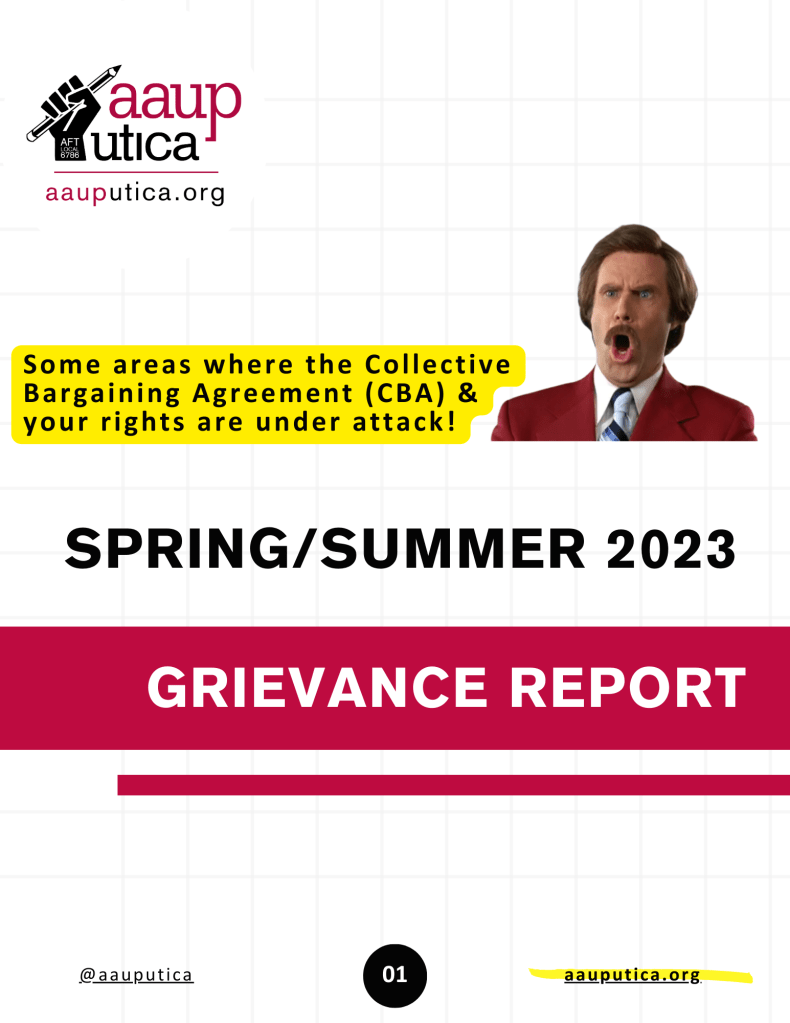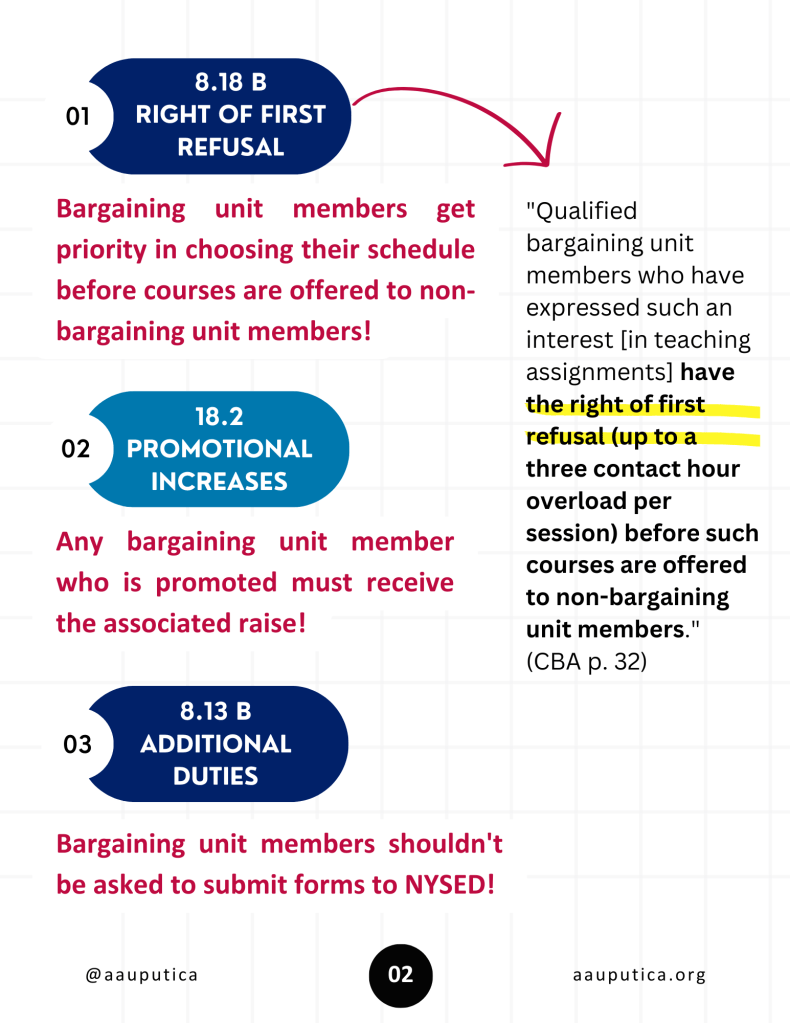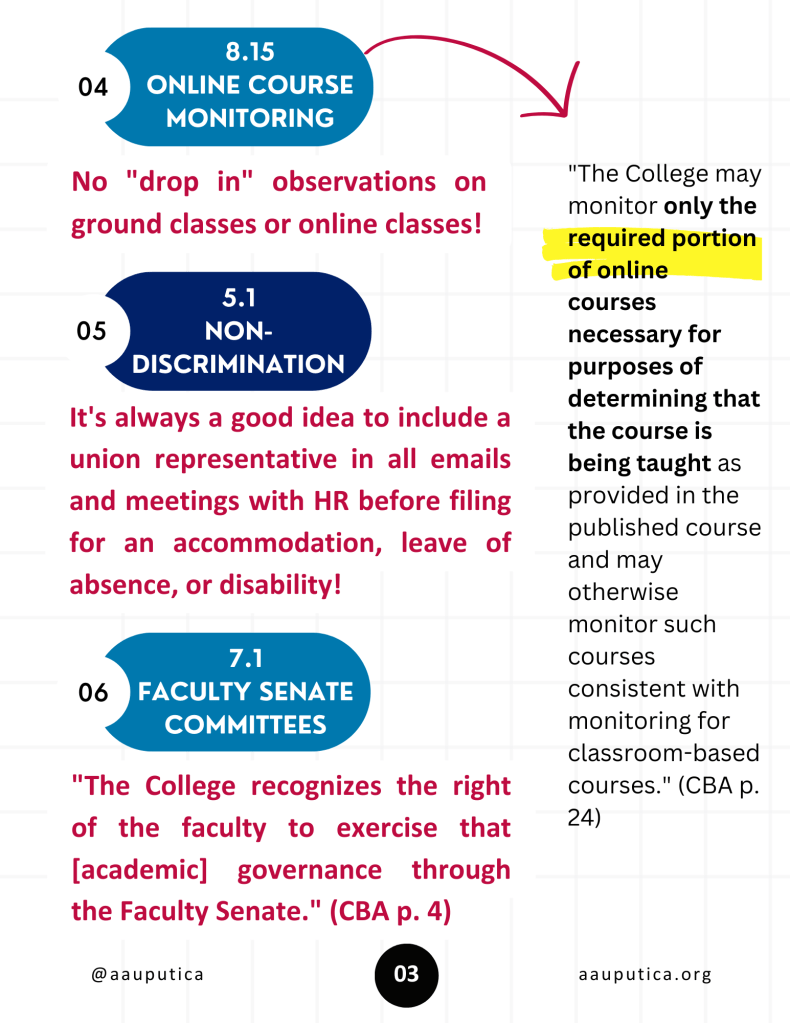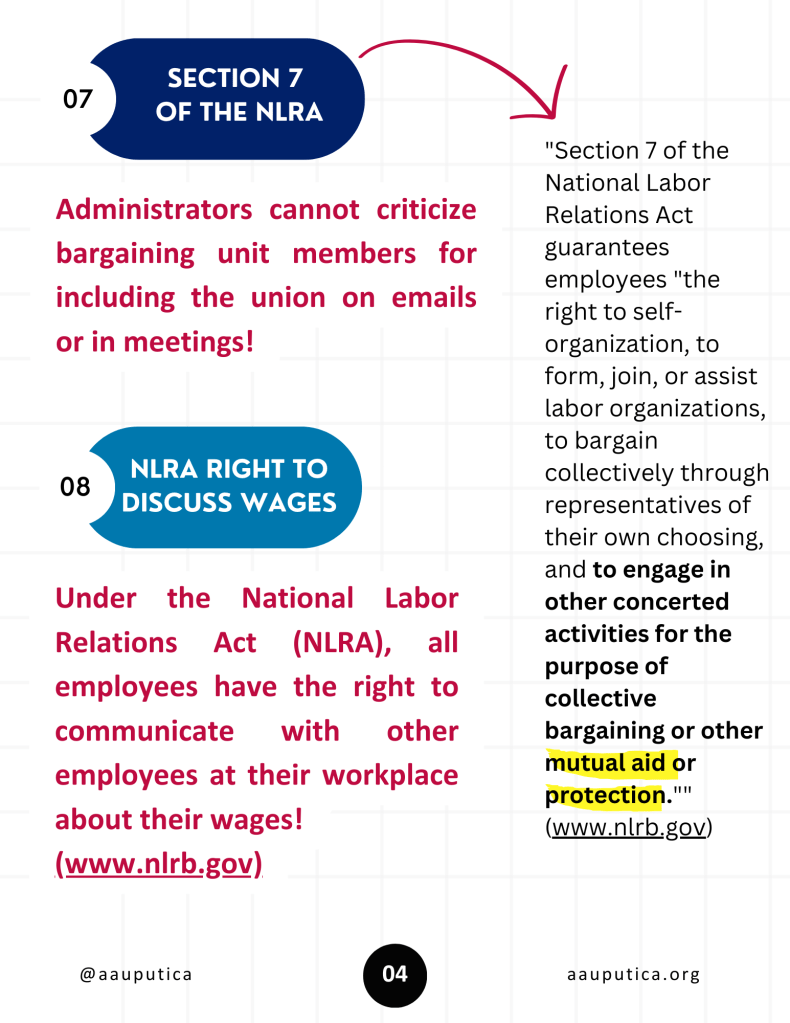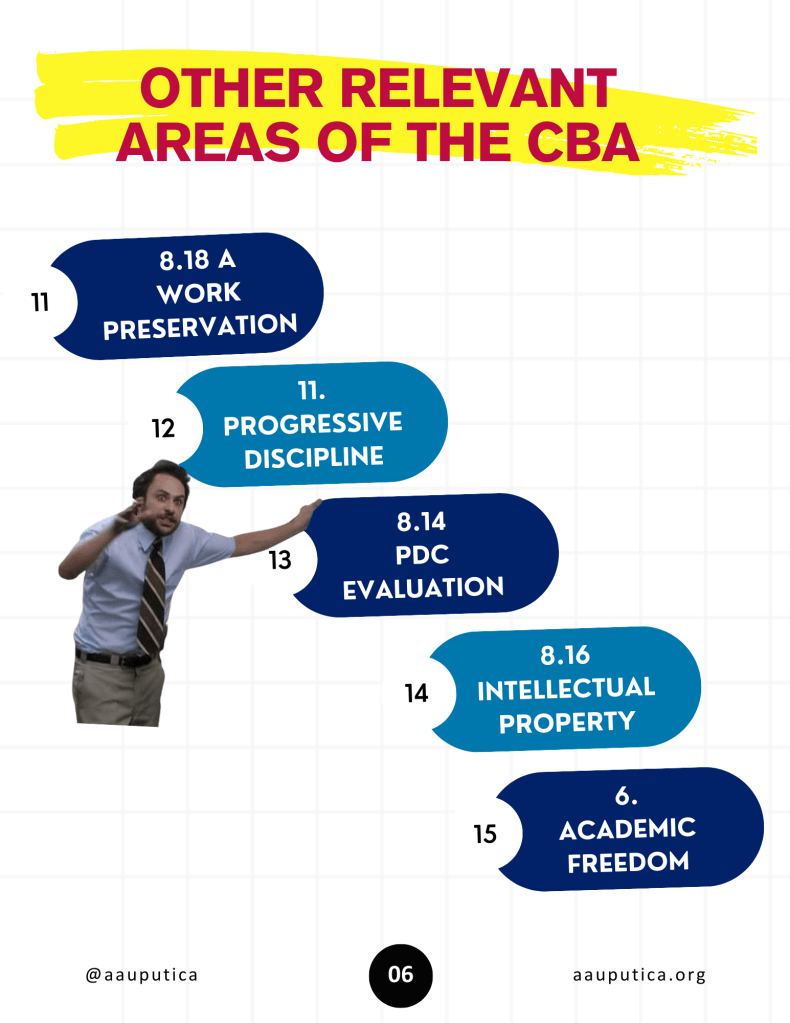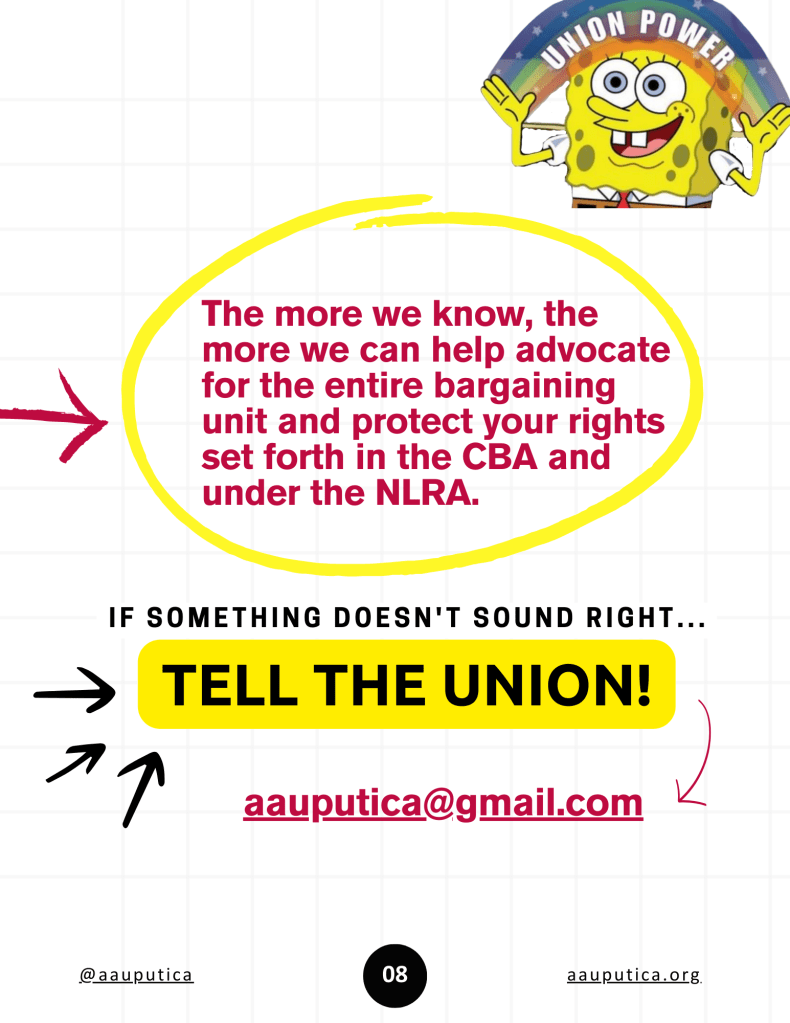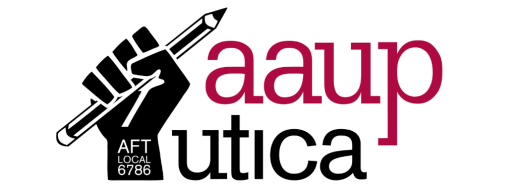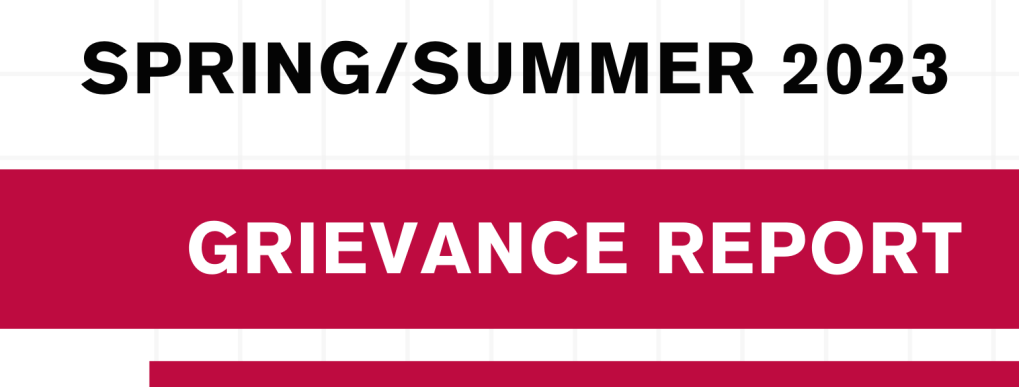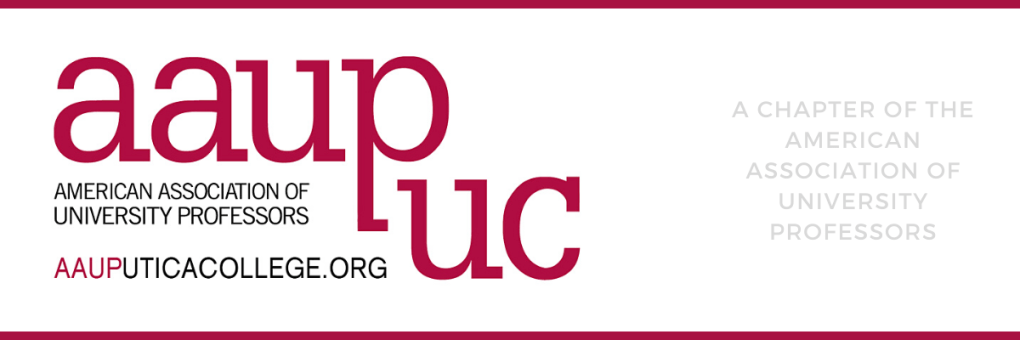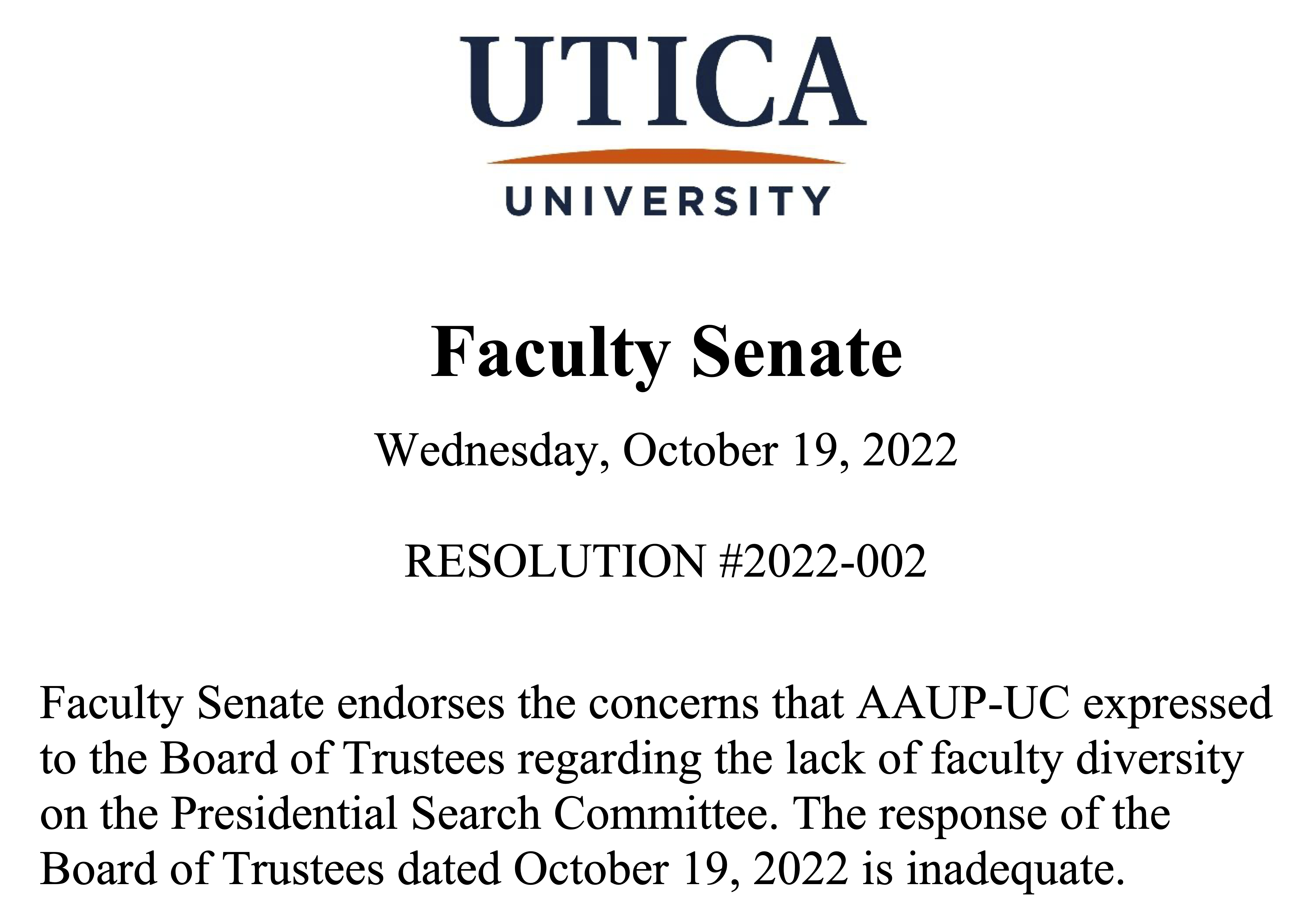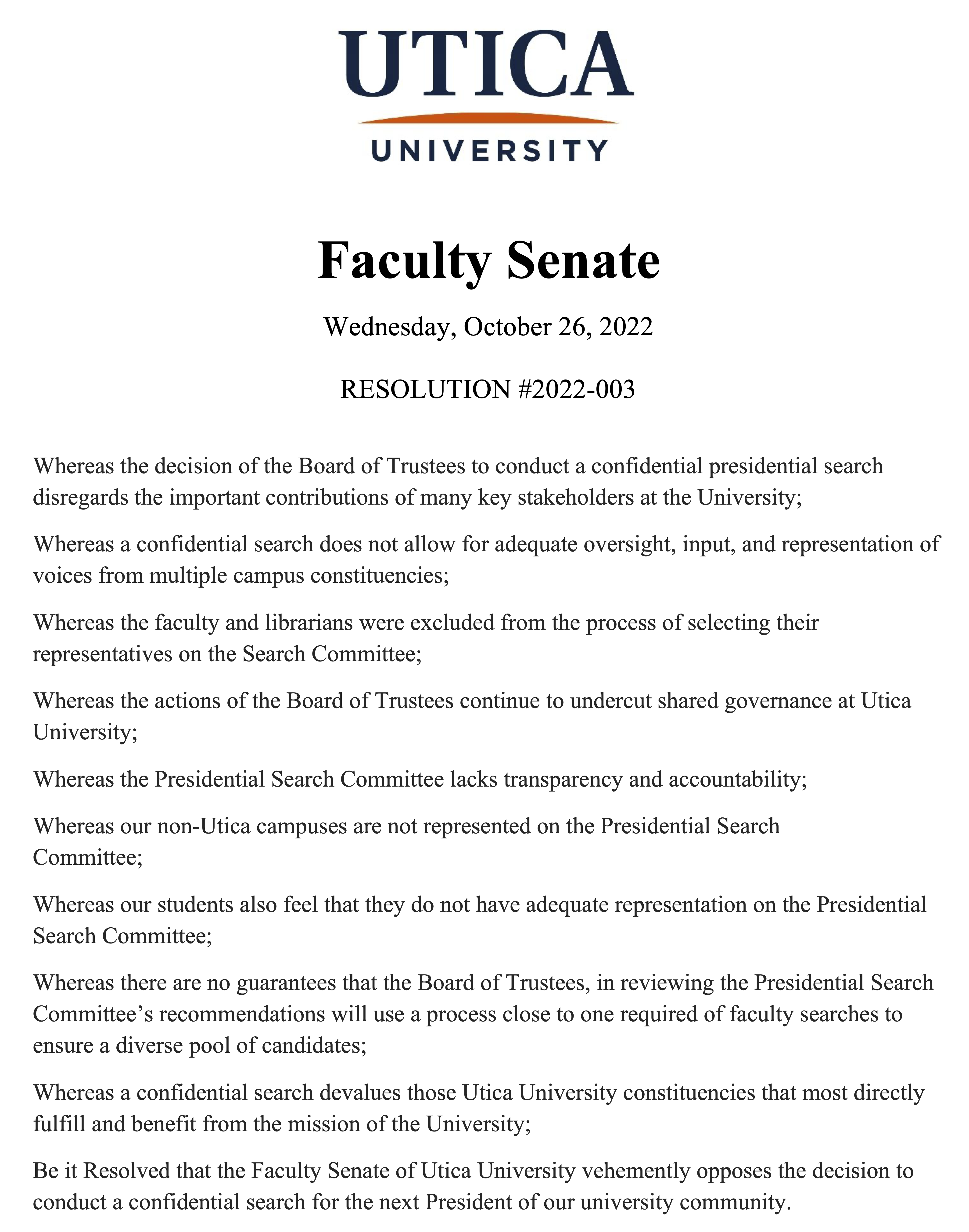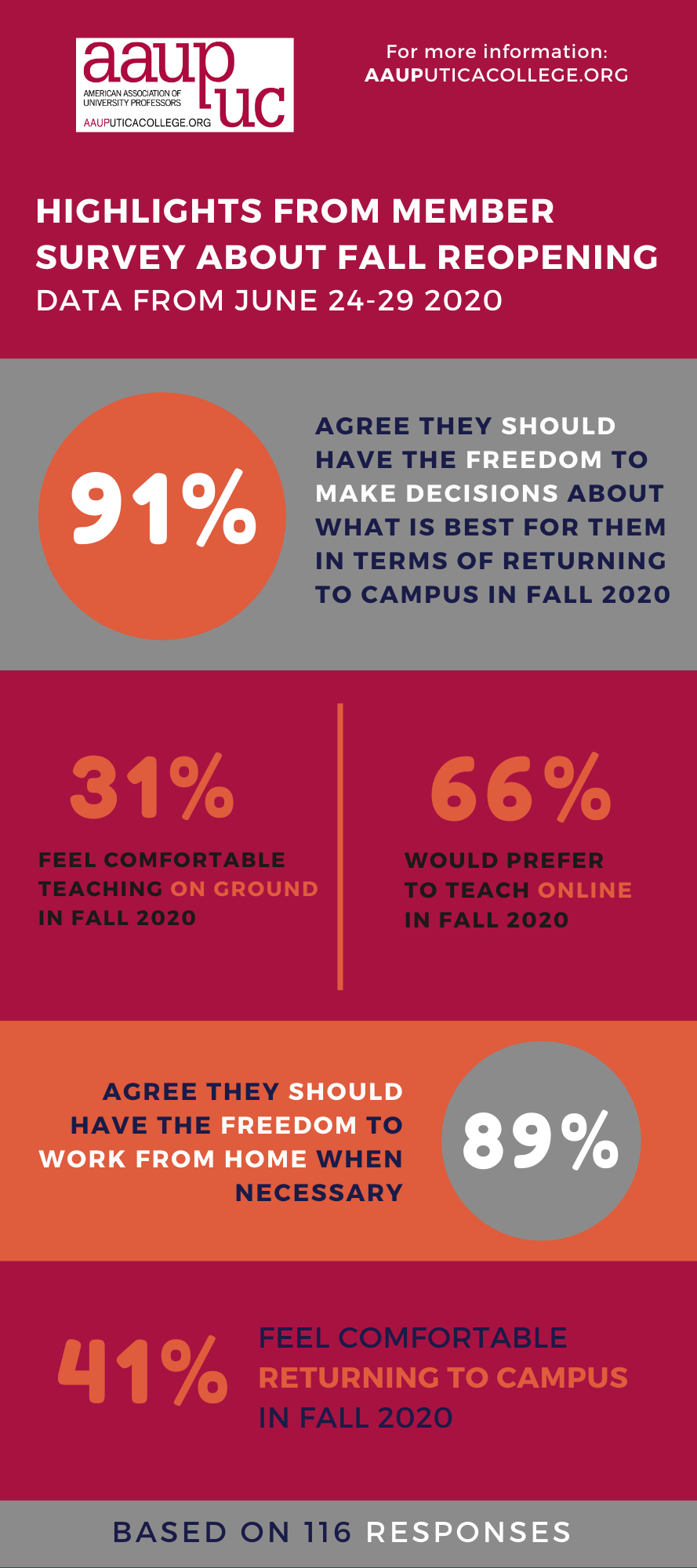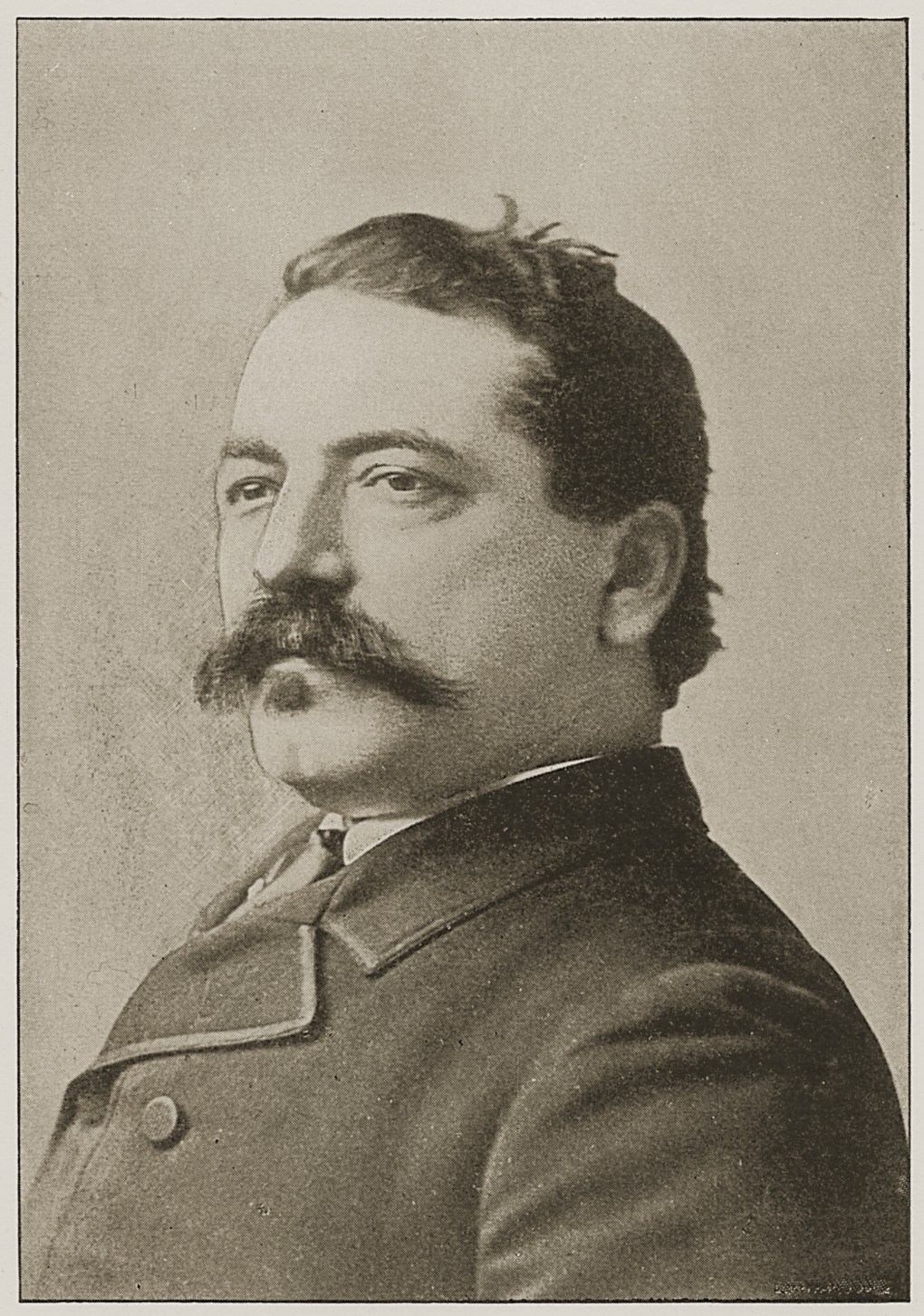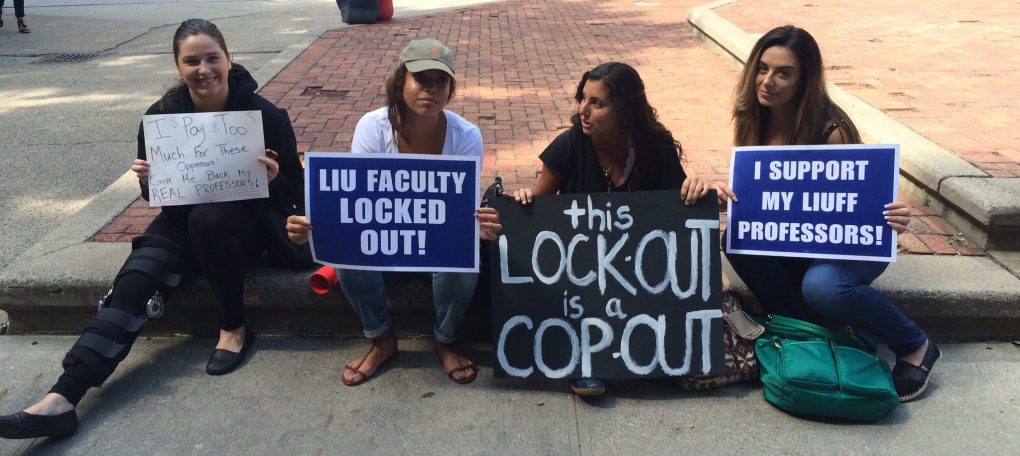10+ months fighting for a fair contract, advocating for the needs of the full-time faculty, librarians, and HEOP counselors.
9.97% increase in inflation since August 2021.
89+ days working without a contract.
7.625% pay cut for full-time faculty, librarians, and HEOP counselors for fiscal year 2020-2021.
68% of 119 full-time faculty and librarians who participated in a survey last week said they would vote Yes on a strike authorization vote.
5 members in the university leadership (at least) are leaving the institution at the end of the semester.
4 outstanding information requests still remain from the AAUP-Utica asking the University to explain their financial position.
3 extraordinary faculty (at least) are leaving this institution to take other jobs.
2 talented students (at least) withdrew within the last few weeks from the University in order to transfer to other institutions because their major was cut by the Board of Trustees on February 16, 2023.
1 year after becoming a “University,” the Board of Trustees voted to cut 13 programs at the behest of President Laura Casamento.
This past year we’ve been given
0% respect and shared governance
0% justification and transparency
0% raise in salary
Our working conditions are our students’ learning conditions. We are worth more than this; our students are worth more than this. We are all worth more than 0%.
Leonore Fleming, President, AAUP Utica/AFT 6786
AAUP-Utica Governing Board Officers
Douglas Edwards, Vice President
John Peter, Treasurer
Jim Brown, Secretary
Adam Pack, Immediate Past President
Xiao Xiao, Immediate Past Treasurer
Kirstin Walker, Grievance Officer
AAUP-Utica Governing Board Members At Large
Linnéa Franits
Ariel Gratch
Amy Lindsey
Jeffrey Miller
Deborah Pollack
Daniel Tagliarina
